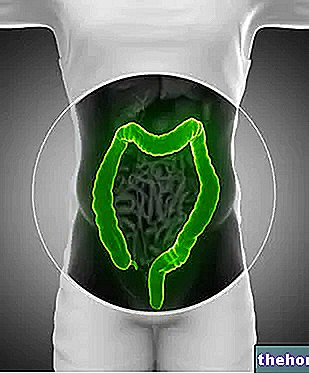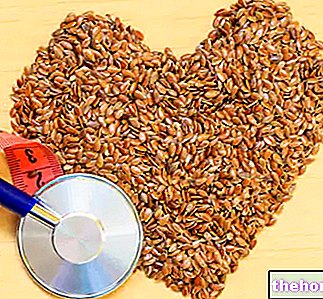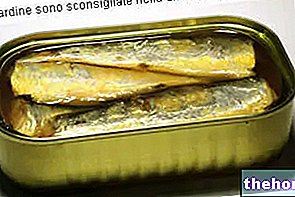Fundamental Premise
The inalienable importance of quitting smoking
Before analyzing the protective usefulness of diets and supplements against the harm of smoking, it is necessary to make a premise.
There are no diets, drugs or supplements capable of offering absolute protection from the harm of smoking.
The only effective, and always advisable, strategy to protect yourself from the harms of smoking is to quit smoking.

This premise is essential to say the least, since, according to some studies, smokers who regularly take multivitamin supplements tend to feel somehow more protected from the harms of smoking; as a result, they reduce the commitment to quit smoking and tend to consume more cigarettes.
Such an attitude tends to nullify any (hypothetical) benefit offered by the "regular intake of" anti-smoking supplements ", worsening the smoker's health rather than improving it.
If then the intake of these products also becomes an expedient to reduce the commitment in the consumption of fruit and vegetables, it is clear that - albeit indirectly - their intake is particularly damaging to the health of the smoker.
So, in summary:
- First of all it is necessary to stop smoking; the attending physician is able to provide an overview of the most effective strategies in this regard, helping the patient in the (often difficult) path of smoking cessation;
- If you are unable to quit smoking, it is even more important to try to take care of your diet with the help of a professional; statistics reveal that smokers are more prone to adopt improper eating habits, which in fact tend to aggravate the damage of the smoke;
- If you are unable to optimize your diet and / or if your doctor or nutritionist deems it appropriate, a multivitamin / antioxidant supplement or a product specifically formulated against the harm of smoking may be considered.
- If you decide to take a supplement against the harm of smoking, you should always remember that:
- the benefits offered by these products are questionable and in any case limited (not all studies agree on their usefulness and, in some cases, some single high-dose vitamins can be dangerous);
- The intake of these supplements must not offer an illusory sense of protection from the harm of smoking; those who take them must take into account that any benefits are still limited and that to protect their health they should first of all limit the number of cigarettes smoked ( or better yet, stop smoking altogether);
- the intake of these supplements must not replace the consumption of a varied and balanced diet; before taking a supplement it is necessary to make every reasonable effort to optimize one's diet.
Diet Against the Harms of Smoking
The habit of smoking tends to increase the nutritional requirements of some vitamins and antioxidants in general; in particular:
- vitamin C: it is the most precious vitamin for smokers, since the body consumes it to neutralize the free radicals introduced through cigarette smoke. Not surprisingly, smokers have a need for vitamin C 2-3 times higher than non-smokers (smokers should take at least 200mg of Vitamin C per day).
The foods richest in vitamin C are of vegetable origin; among the best known and most consumed, we remember oranges, lemons, grapefruits, kiwis, pineapple, strawberries, tomatoes, broccoli, cauliflower, cabbage, cabbage and lettuce.
A diet characterized by the consumption of at least 4 portions of fresh seasonal vegetables per day (2 of fruit and 2 of vegetables) is on average able to satisfy even the increased needs of vitamin C of smokers. Furthermore, it supplies the body with many other vitamins, mineral salts and polyphenolic antioxidants which - similar to vitamin C - are used by the body to fight the free radicals generated by smoking. - folic acid: it is another important vitamin for smokers; similar to C, it is found in fresh plant foods, such as peas, beans, tomatoes, oranges and green leafy vegetables.
Similarly to vitamin C, folic acid is negatively affected by the effect of light and especially high temperatures. For this reason, it is preferable to consume about half of the daily vegetable portions raw; smoothies and centrifuged should be consumed quickly after preparation. - carotenoids and vitamin E: important for their antioxidant role, they are generously contained in red-orange vegetables (carotenoids), oil seeds and related oils (vitamin E).
Vegetable oils (e.v.o, corn, hazelnut, walnut and the like, avoiding tropical ones) must still be consumed in moderation, as excessive consumption favors overweight. In this regard, please note that excess body fat amplifies the damage of smoking and that, for this reason, the smoker's diet should also be sober and free of excesses; - vitamin D: in recent years, researchers have paid particular attention to this vitamin, recognizing an increasingly important role in health. The benefits of vitamin D would also be significant for smokers, given its anti-inflammatory and protective role against smoke-related lung diseases.
Most of the needs of Vitamin D are satisfied by sun exposure; in the absence of liver or kidney diseases, in fact, the body is able to synthesize the Vitamin D it needs by itself through sun exposure of the skin.
For smokers, sun exposure would therefore be particularly important, as long as it occurs gradually, avoiding sunburn and is supported by a diet rich in antioxidants.
With regard to foods rich in Vitamin D, some fatty fish (salmon, mackerel and herring), egg yolk, liver, fish oils (especially cod liver oil) and artificially enriched foods are mentioned. - omega 3: fish and fish oil are also very important for their generous supply of essential fatty acids of the omega-3 series. These nutrients, for their anti-inflammatory, hypo-tensive and cardiovascular protective activity, represent very important nutrients for the smoker's health. Their adequate intake is guaranteed by the consumption of 2-3 portions of fish per week and, partially, by the consumption of nuts and some particular vegetable oils (such as hemp seed)
The Smoker's Diet is therefore similar to that normally recommended for the general population, although greater and more rigorous adherence is required.
Supplements against the damage of smoking
Premise
Having ascertained the greater needs of some nutrients and demonstrated the beneficial role in protecting the health of smokers (there is in fact an evident correlation between low plasma levels of antioxidants and an increased risk of getting sick from smoking-related diseases), several studies have tried to understand whether a specific integration could represent a valid bulwark against the damages of smoking.
As logic suggests, isolating a single nutrient from the countless present in foods, and administering it alone in concentrated form, can be poorly effective, useless or even dangerous. The vitamins and antioxidants present in foods act in concert to exercise a global protective role, which cannot be attributed to a single nutrient in particular.
Between the 90s and the early 2000s, for example, an attempt was made to evaluate the "protective efficacy of" supplementation with beta-carotene and vitamin E in preventing lung cancer; a large population study highlighted a "substantially null efficacy for vitamin E, and even a potential negative effect for beta-carotene in smokers.
In general, several studies have shown that if a nutrient is beneficial to the smoker's health when it comes from a balanced and varied diet, it is much less assumed that it benefits even when it comes from a food supplement in isolated form.
Which Supplement?
A supplement against the harm of smoking should provide - more than a single nutrient in concentrated form - a mix of substances useful for the health of the smoker.
On the vitamin front it should first of all provide the right doses of those vitamins for which the risk of deficiency is greater; as we have seen, it should therefore be a generous source of Vitamin C, with good amounts of Vitamin D, Vitamin E, folic acid and vitamin B12.
It should then provide an antioxidant matrix of plant origin, such as citrus, medicinal plant or algae extracts, or a mix of antioxidants (including, for example, resveratrol, lipoic acid, N-acetylcysteine, melatonin, polyphenols and bioflavonoids).
The role of omega three is also very important for those who do not take adequate quantities of fish.
In addition to vitamin C and D, the greatest evidence on the possible protective role for the health of smokers is recorded for N-acetylcysteine, given the antioxidant and favorable role for the health of the respiratory tract (it is also used in the pharmaceutical field in the treatment of some respiratory diseases, such as COPD, more common among smokers).
A good smoking harms supplement should also provide substances that can help you to quit smoking in some way. Among these, melatonin, tryptophan, berberine and the same n-acetylcysteine may have some usefulness (see also Natural Supplements for Quitting Smoking).
















.jpg)











